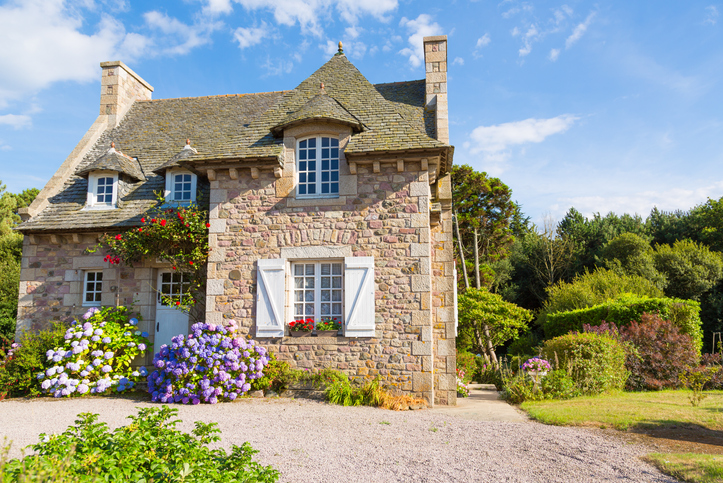The pandemic has had a big impact on the property market, with huge demand meaning house prices are at the highest level in records, but it’s also caused homebuyers to rethink where they live. With the majority of the UK’s workforce setting up shop at home in the midst of the pandemic, and many businesses continuing working from home or adopting a hybrid approach, many workers don’t find the need to live in the big cities for work anymore. The pandemic has also led a lot of people to reassess their values and their health, swapping busy towns for quieter villages.
According to upmarket estate agent Savills, after lockdown, there was a surge in the number of buyers planning to get away from the hustle and bustle of city life and settle down in the country. Searches on their site for Scottish locations such as Inverness and Shetland more than doubled in April last year.
Of course, country living isn’t a new thing but historically those searching for the quieter life were those looking to retire. But more and more young people are moving to smaller villages and rural spots, bringing independent coffee bars and shops brimming with artisan foods and handmade crafts.
But before you decide to up sticks and go off-grid, there are a few things you may want to consider.
Feeling disconnected
We’re not necessarily talking about internet connection here. Gone are the days when you needed to be in the heart of the city to enjoy a strong phone signal, moving to the countryside doesn’t mean you’ll lose bars. The only bars you may miss out on are the ones you hit after a long day at work or to socialise with friends. Small villages for example may only have one or two local pubs along with a handful of cafes and restaurants. The upside is that you’ll get to know the locals a lot better, and in smaller communities, this is essential to feeling at home. This will help if you start to feel disconnected from friends and family that maybe live a little further away. When you decide to move somewhere more rural, you need to be aware that you can be adding a lot of miles between you and your support group, so it’s important to build new relationships but also find alternative ways to feel connected to those we are distant from. But after almost two years in lockdown, finding creative ways of connecting to friends and family should be a doddle.
Be practical
Rural living sometimes means that when you make purchases, you often need to consider practicality and functionality over style or even price. For example, when it comes to your car, you may need to think about one that can handle different terrain or at least invest in different tyres for the different seasons. It’s not just handling you need to consider, think about refuelling too. How far away are you from the nearest fuel station? Could this be the perfect opportunity for you to make the switch to an electric or hybrid car and fit a charging system at home?
If you’re relocating somewhere very rural, consider maintenance on your car too. It’s probably time to give up that old banger that is constantly in and out of the garage, for something a little more reliable. You may need to splurge on a newer model that costs more initially but could save you a lot in the long run. For those that live in rural places where public transport can be limited, being able to drive is a lifeline to getting around.
It’s not just the big purchases you may need to reconsider. Little things like investing in a good pair of walking boots and lots of waterproof clothing to enjoy those amazing country walks is important too.
Education and work
Two biggies when considering a move to the countryside. The more remote you are and further out of the city limits, your choices get more limited for school and work options. For those enjoying the benefits of working from home and are looking to continue that, work considerations might not be an issue but if you have kids or are planning a family then school options may be make-or-break. Not just for early stages, primary and high school but how close are you to ensuring they can continue their further education? Are there good colleges nearby or accessible through public transport?
Remember catchment areas might be tricky and you can only confirm a child’s place in school when you have confirmed contracts to purchase the property or have a rental agreement in place.
A new way of thinking
Moving to the countryside or a rural area takes a new way of thinking, especially if you are more used to city living. The best thing to do is to embrace your new way of life and go with the flow as best as possible. Build those important relationships with those in the community and lean on them. Take advantage of community meetings and local clubs that are there to help.
Ready to start a new life in the country? Search all the best Scottish properties to buy and rent at s1homes.com today.



















